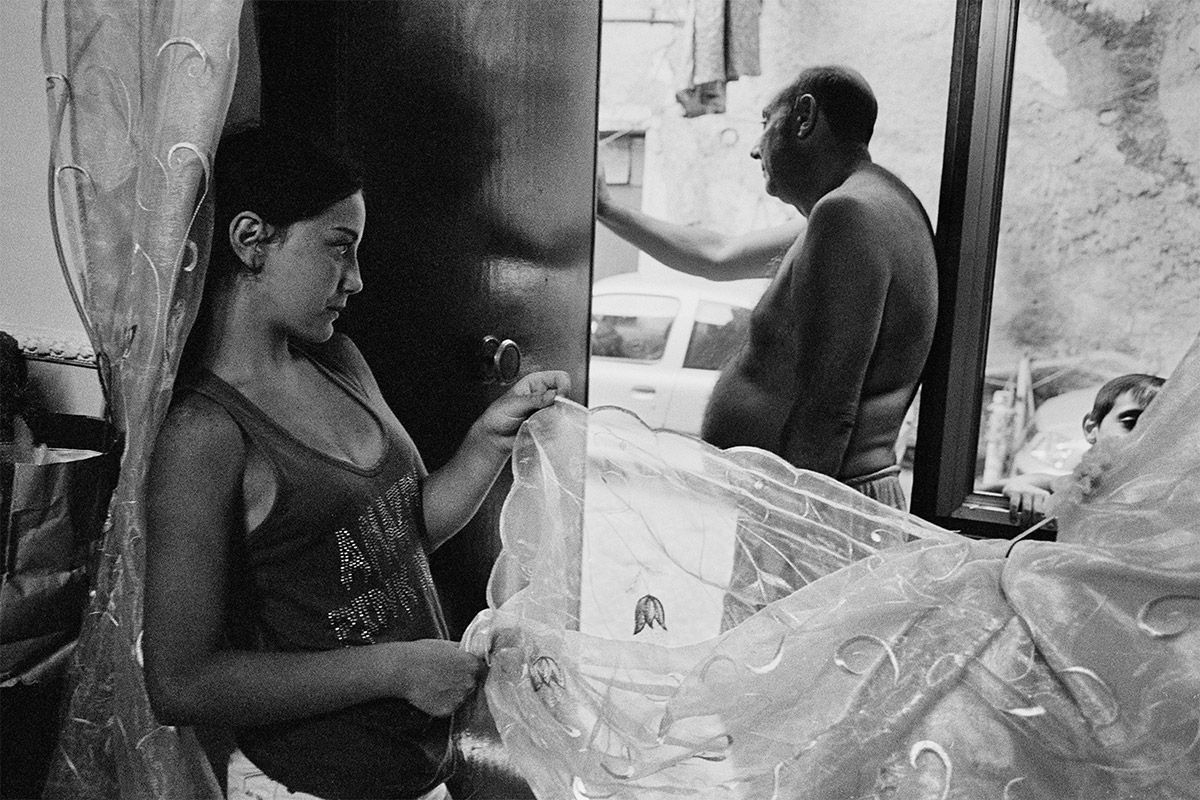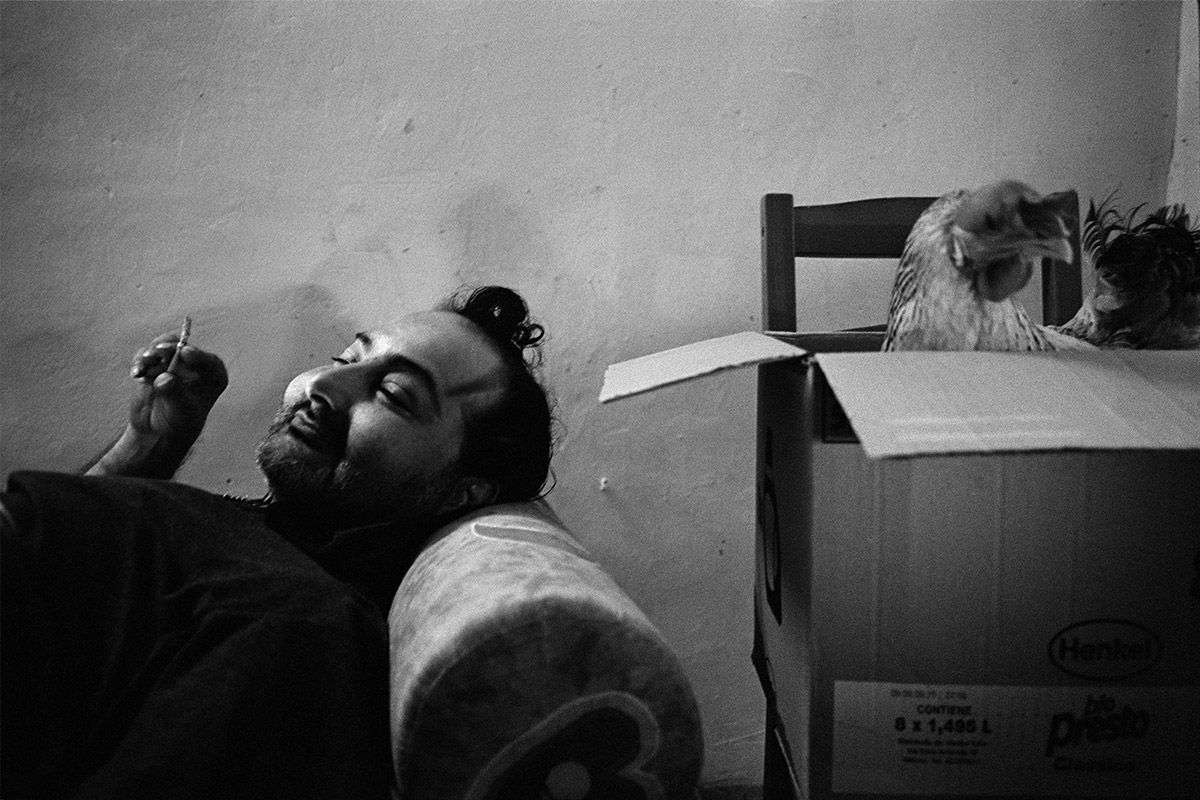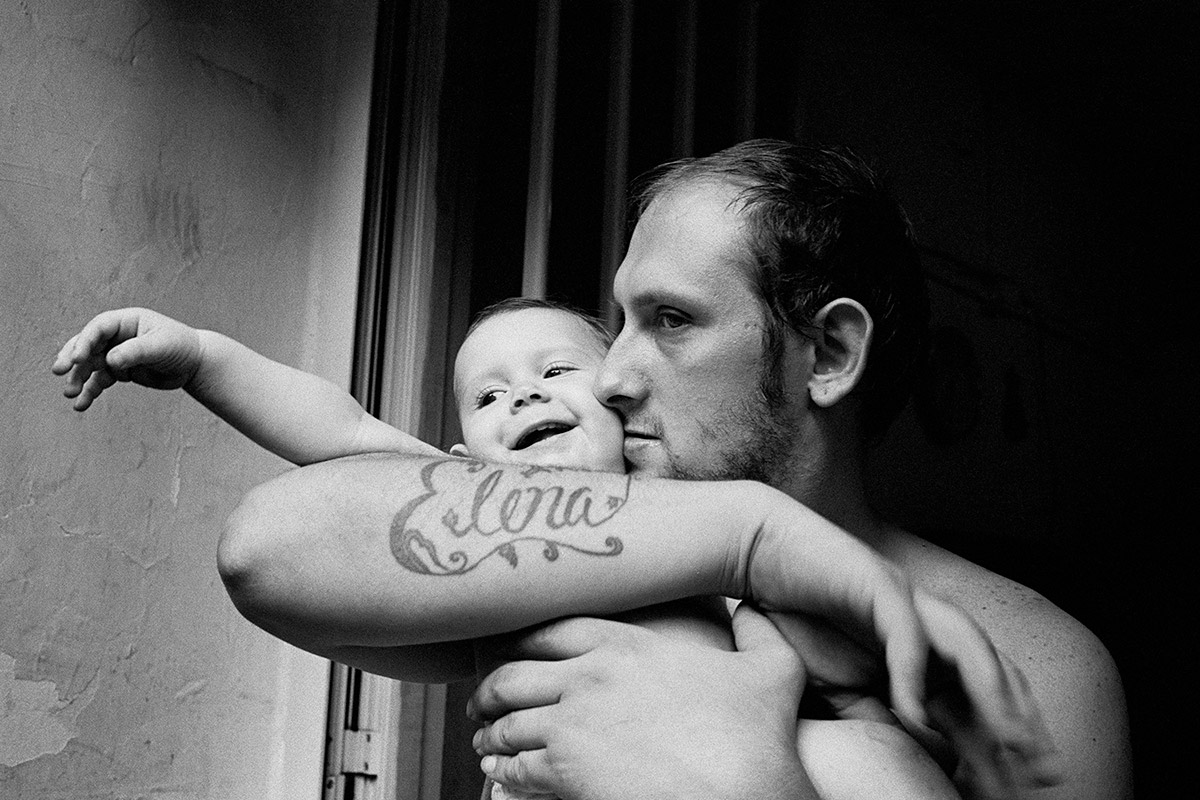blog
Interview with photographer Ciro Battiloro
 F-Stop Magazine: How did you first become involved in photography in general and documentary projects specifically?
F-Stop Magazine: How did you first become involved in photography in general and documentary projects specifically?
Ciro Battiloro: I’ve always felt the need to find a way to express myself. Before starting to photograph I was playing bass in a band. Then I discovered the works of Koudelka, Eugene Richards, Mary Ellen Mark… and everything started. I began to understand that photography could be an instrument of expression and at the same time of understanding reality in all its nuances, but in particular it is a way to face the awareness of the loneliness of the human being, so on returning from a trip to Morocco I bought an analog camera.
F-Stop: The current issue of F-Stop Magazine includes images from your project “Sanità,” can you tell us about this project? What led to this work?
CB: My project focuses on Rione Sanità’s life in its intimate and sweet fold. My images want to give back the best part of that flesh that can also be bestial. The Sanità district, situated in the heart of Napoli (an Italian metropolis), is one of Europe’s most densely populated places. The district, born as a residential area for noble and aristocratic families, has become one of the poorest in Naples due to the construction of the Sanità’s bridge (also known as Ponte Maddalena Cerasuolo). It has excluded the neighborhood from the city’s life. I don’t want to make a historical document, I want to talk about existence from childhood to death. This is why my project became a work on love and loneliness, basic human conditions which are also metaphors for the reality of this district. I have known about Sanità for a long time because of the social problems that afflict it: unemployment, school drop-outs, criminal organizations. I was attracted to the idea of understanding the dynamics of such a neighborhood. It’s located in the heart of the city, yet totally excluded from the city’s life because of historical processes and bad politics. Soon after I started going around the alleys and getting to know the inhabitants in 2015, it became clear to me that the place is full of amazing people and energy. There are many different and precious stories, full of dignity. This is where the authentic nature of human beings is found in everyday life.
F-Stop: Many of the images in this project are portraits capturing intimate moments, how do you go about approaching your subjects to photograph them? Does it take time to get to know them before you photograph?
CB: Obviously I went back to see my subjects many times and often I didn’t take photos. Actually, the most important thing is to be able to create a relationship with the subjects. I told them about my life and they did the same, this kind of trust allowed me to capture intimacy in the photos. They also appreciated that my goal was to portray these places without falling into rhetoric or stereotypical history. The first questions they always ask me when I go to meet them are « did you have a meal? » or something like « how are your darlings? » This kindness is hard to find these days, and it suggests that there are enormous resources of human happiness that are not exploited by contemporary society.

F-Stop: What makes a “good” photograph to you – for this project specifically or in general?
CB: There are two aspects that make a good picture for me: one is aesthetic (composition and light), the other and the most important one for me is the emotional force of the image and at the same time its mystery from which a reflection can arise.
F-Stop: Do you have a favorite image in this series? If so, which one and why is it the image that speaks to you most?
CB: I have a lot of moments and photos that I remember. One of the most important images for me is this one. Here, Marco is portrayed in a tender embrace with the second of his three daughters, Giusy. Marco has lived in the Rione Sanità for years. He lives with a very precarious economic and working situation. At night he goes out on the street to collect old iron to sell. Clearly his efforts are all aimed at the sustenance of his family. What binds me to this image is the encounter between the subject’s experiences and my personal experiences. This is a prerogative from which my works cannot be separated. I don’t know if this is a quality or a defect of my photography, but I cannot consider my subjects simply from a documentarist point of view. I need a relationship and a sharing that manages me to get into the existential dimension of subjects and that at the same time questions my existential dimension.
I realized that in that embrace there was all that I have received or what I’d wanted to receive from my father. In that embrace, there are all my questions about what it means to be a father in a society of which many principles I do not share. The answers are in the purity and innocence of this moment. I wonder at this moment that we are living when and how our bodies will begin to touch again and if this will be enough to fill the void towards which we have long pushed ourselves

F-Stop: How do you describe your photography to someone who’s not familiar with it?
CB: I am a documentary photographer, I use a very intimate and empathic approach and I am particularly interested in giving attention and dignity to borderline contexts.
F-Stop: Are you working on any other projects currently?
CB: I would like to continue my research on urban marginalities. Later Sanità and I have almost completed my project Santa Lucia about a district in Cosenza. It would be interesting both to create a third chapter on southern Italy but also to tell the theme in different contexts such as northern Italy or abroad. Last time, due to the closure and the difficulties that created the covid-19 emergency, I also had the idea of realizing a project on my municipality, Torre del Greco, a way to explore my origins to deal with my past.
F-Stop: What photographers or other artists inspire you?
CB: I would like to underline the importance for all my research of two Italian artists and intellectuals: Pier Paolo Pasolini and Eduardo de Filippo. They were fundamental for me for their in-depth investigation of the human being, for their criticism of capitalistic society, for their respect for any form of culture, and for the authenticity of their works. Returning to photography, an author who influenced me at the beginning was Josef Koudelka. I am attracted to the mystery and at the same time to the universality of his images. Now I really appreciate the works of Mary Ellen Mark, Eugene Richard, Chris Killip.
To see more of Ciro Battiloro’s work, visit his website at www.cirobattiloro.com or check out the Open Theme 2021 issue of F-Stop!
Location: Online Type: Black and White, Documentary, Featured Photographer, Interview
2 responses to “Interview with photographer Ciro Battiloro”
Leave a Reply
Events by Location
Post Categories
Tags
- Abstract
- Alternative process
- Architecture
- Artist Talk
- artistic residency
- Biennial
- Black and White
- Book Fair
- Car culture
- Charity
- Childhood
- Children
- Cities
- Collaboration
- Community
- Cyanotype
- Documentary
- Environment
- Event
- Exhibition
- Faith
- Family
- Fashion
- Festival
- Film Review
- Food
- Friendship
- FStop20th
- Gender
- Gun Culture
- Habitat
- Hom
- home
- journal
- Landscapes
- Lecture
- Love
- Masculinity
- Mental Health
- Migration
- Museums
- Music
- Nature
- Night
- nuclear
- p
- photographic residency
- Photomontage
- Plants
- Podcast
- Portraits
- Prairies
- Religion
- River
- Still Life
- Street Photography
- Tourism
- UFO
- Water
- Zine

Stimulating images.
Solid interview
Lovely work, it has a real honesty about it, unconfused and raw, no pretense, you can see everything. John